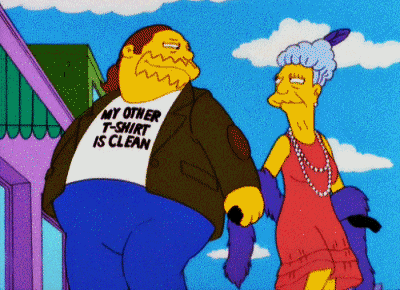As mentioned before, it would take someone much more dumb than Layton to not know there was a good chance he was exploiting someone or that a seedy Chinatown "shiatsu" massage parlor is not suspicious. That is just willful ignorance.
I'm not saying that the former is OK, only that there is a clear distinction between directly perpetrating exploitation and indirectly supporting it. Neither are fine, but there is a difference between the two.
Well, I think this is moral equivalence. There is a clear difference between someone who steals a car and someone who purchases a stolen car. Yes, the latter is implicated in the crime, but these are recognized as different crimes by the law and are clearly different magnitudes of wrong.
Unfortunately our society is set up in such a way that most people indirectly support exploitation multiple times daily. Its in the very fabric of our society. In fact, if you trace every purchase back far enough through however many degrees of connection, its quite possible literally every purchase you make supports some sort-of injustice or exploitation. Furthermore, any purchase by a consumer involves some degree of uncertainty - its not possible to be completely clean or not morally compromised in some way. As well, with almost any consumer purchase there is a degree of moral compromise - eat meat and animals need to be slaughtered, have a pet and buy them food which is processed in developing nations with high rates of starvation and hungry poor. Yes, there are a lot of injustices, but that doesn't mean they are all of the same severity.
So, yes, in lieu of this, I do think several degrees of separation do dilute the severity of supporting exploitation in contrast to directly administering it. There's a difference between buying a food product, which you need for eating and which probably does support exploitation in some way if you trace it back far enough, and directly exploiting an immigrant sex worker by making her jerk you off.
The reason I really don't like your line of thinking is that it excuses basically any immorality and draws a moral equivalence between everybody no matter the degree of their crimes. Do you really think you (who I'm going to assume has purchased a Nestle product in your life, or Apple, or some other major corporation product) are the same as a guy who flew to Thailand and fucked a kid once? You really want to equivocate that? There's a clear difference in severity there. I feel like it really takes a lot of academic, spurious reasoning to equivocate these two things.
Fair enough. The reason I see the Layton scandal as more problematic is because his act was directly exploiting someone.
Sure...

Well, we don't know that, but we do know that it was under investigation by the police and that it was located in a neighborhood where there are a lot of illicit massage parlors. Plus, he was naked, which should have set off red flags for him.
If the officer had an axe to grind against Layton, he could easily have arrested Layton or leaked this to the press the moment it happened. This "axe to grind" argument is the exact same narrative some Ford supporters use in regard to the Toronto Star, and it just doesn't wash.
Another argument leveled at Ford which equally applies here is that Layton never denied the allegations. There's a police officer, with his notes from the day as proof, alleging Layton was at a massage parlor, was naked, had wet tissues disposed of, and Layton not only confirmed that he was at the parlor on the day and encountered the police, but did not deny being naked or any of the other allegations.
The whole Layton scenario has about as much proof as the Ford-crack scandal. There's no concrete proof, but all logic and reason, along with the reactions of the targeted parties, points towards the allegations being true.






